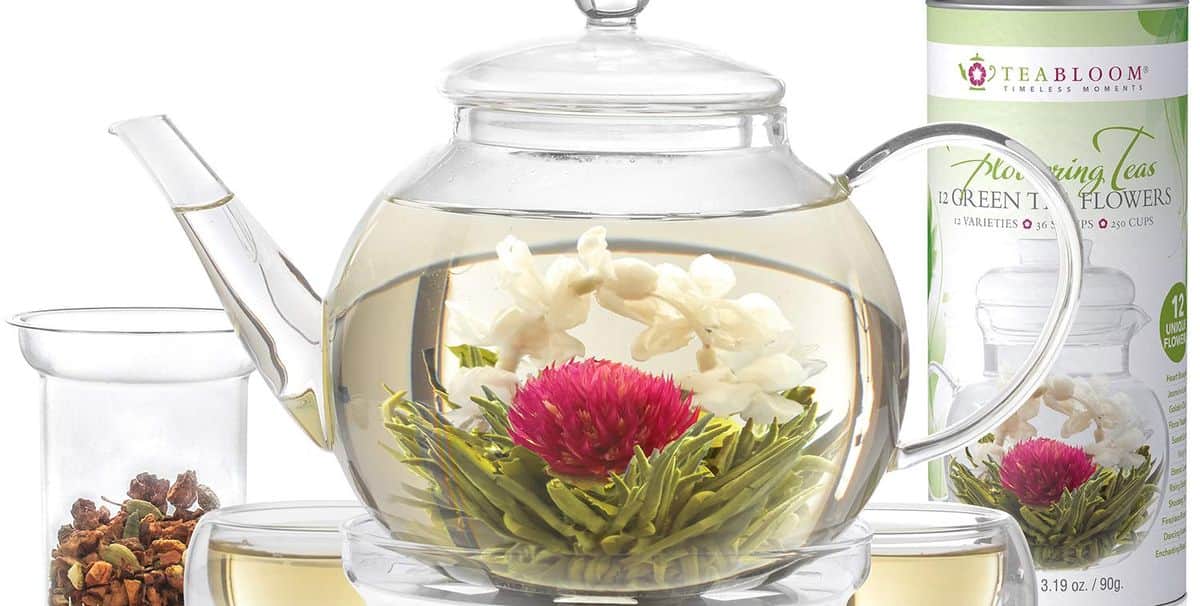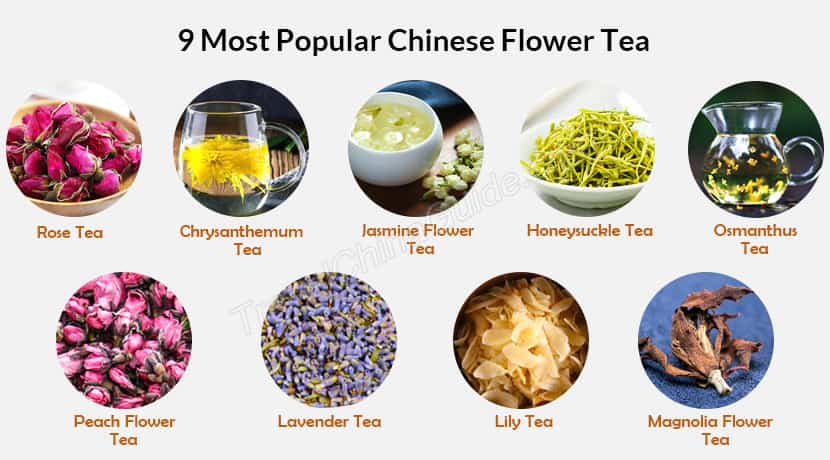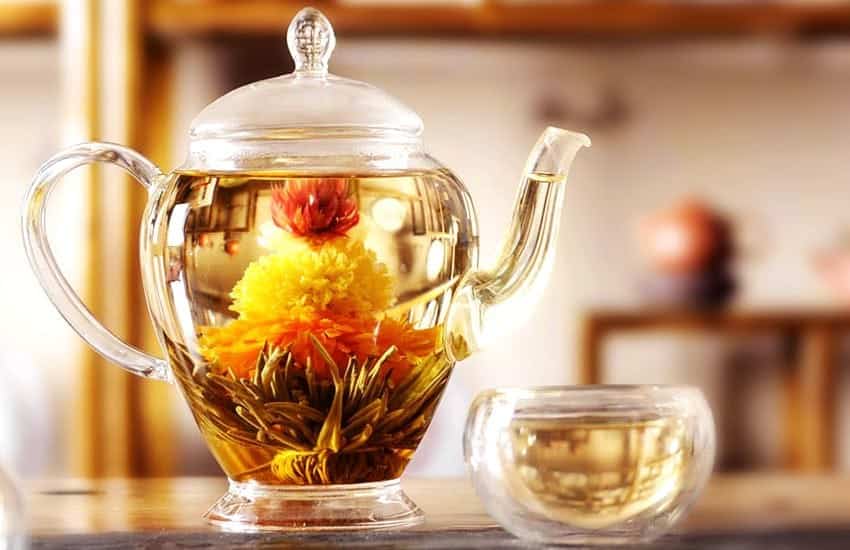Tea has been enjoyed for centuries, and with good reason. It’s a delicious and soothing beverage that can help to calm the mind and improve overall health. But have you ever tried flower tea? This type of tea is made by infusing fresh or dried flowers in hot water and is becoming increasingly popular around the world. Not only is flower tea a delicious way to enjoy tea, but it also offers a range of health benefits. In this blog post, we’ll explore everything you need to know about flower tea.
What is Flower Tea?
Flower tea, also known as herbal tea, is made from flowers and herbs that are infused in hot water. Unlike traditional tea, which is made from the leaves of the Camellia sinensis plant, flower tea can be made from a variety of plants, including chamomile, lavender, hibiscus, rose, and jasmine.
Flower tea is typically caffeine-free, making it a popular choice for those who are sensitive to caffeine or who want to enjoy a cup of tea before bed.
The Originality of Flower Tea
The originality of flower tea lies in its artistic preparation. Each tea ball is handcrafted from premium tea leaves and dried flowers, which are carefully sewn together to create a compact bundle. When steeped in hot water, the bundle slowly unfurls to reveal a beautiful flower blooming inside the teapot or cup.
Flower tea has a long history in Chinese culture, dating back to the Tang Dynasty (618-907 AD). In ancient times, flower tea was primarily consumed by the aristocracy as a luxury item. Today, it has become much more accessible and can be enjoyed by anyone who appreciates the beauty and health benefits of this unique tea.
Health Benefits of Flower Tea
In addition to being a delicious beverage, flower tea also offers a range of health benefits. Some of the most notable health benefits of flower tea include:
- Rich in antioxidants: Flower tea is rich in antioxidants, which can help to protect the body from damage caused by free radicals.
- May help to improve sleep: Many flower teas, such as chamomile and lavender, are known for their calming properties and may help to improve sleep quality.
- Can support digestive health: Some flower teas, such as peppermint and ginger, can help to soothe digestive issues like bloating and stomach cramps.
- May help to reduce stress and anxiety: The act of drinking a warm cup of tea can be soothing in and of itself, but some flower teas like jasmine and passionflower have been shown to have anxiety-reducing properties.
Popular Types of Flower Tea
There are many different types of flower tea available, each with its own unique flavor and health benefits. Some of the most popular types of flower tea include:
- Chamomile tea: Made from the chamomile flower, chamomile tea is known for its calming properties and may help to improve sleep quality.
- Lavender tea: Lavender tea is made from the dried flowers of the lavender plant and is known for its relaxing properties.
- Hibiscus tea: Made from the hibiscus flower, hibiscus tea is tart and refreshing and is rich in antioxidants.
- Rose tea: Made from dried rose petals, rose tea has a delicate floral flavor and is known for its anti-inflammatory properties.
- Jasmine tea: Jasmine tea is made by infusing green tea leaves with jasmine flowers and has a delicate, floral flavor.
Some Famous Flower Tea’s Recipes
Flower teas are made by infusing dried flowers in hot water. Here are some famous recipes for flower tea:
- Rose Tea: Rose tea is made by infusing dried rose petals in hot water. It has a delicate, floral flavor and aroma. To make rose tea, steep 1-2 teaspoons of dried rose petals in 8 ounces (240 ml) of hot water for 5-7 minutes.
- Chamomile Tea: Chamomile tea is made by infusing dried chamomile flowers in hot water. It has a sweet, fruity flavor and is known for its calming effects. To make chamomile tea, steep 1-2 teaspoons of dried chamomile flowers in 8 ounces (240 ml) of hot water for 5-7 minutes.
- Lavender Tea: Lavender tea is made by infusing dried lavender flowers in hot water. It has a fragrant, floral flavor and is known for its relaxing properties. To make lavender tea, steep 1-2 teaspoons of dried lavender flowers in 8 ounces (240 ml) of hot water for 5-7 minutes.
- Hibiscus Tea: Hibiscus tea is made by infusing dried hibiscus flowers in hot water. It has a tart, fruity flavor and is known for its high levels of antioxidants. To make hibiscus tea, steep 1-2 teaspoons of dried hibiscus flowers in 8 ounces (240 ml) of hot water for 5-7 minutes.
- Chrysanthemum Tea: Chrysanthemum tea is made by infusing dried chrysanthemum flowers in hot water. It has a light, floral flavor and is known for its cooling properties. To make chrysanthemum tea, steep 1-2 teaspoons of dried chrysanthemum flowers in 8 ounces (240 ml) of hot water for 5-7 minutes.
Flower teas are not only delicious but also have many health benefits. They are caffeine-free and rich in antioxidants, making them a great alternative to traditional tea. Try one of these famous flower tea recipes and enjoy the delicate flavors and aromas of nature’s beauty.
Price of Flower Tea
The price of flower tea can vary depending on the type of flower used, the quality of the flowers, and the quantity of tea purchased. Generally speaking, flower tea is more expensive than traditional tea made from the Camellia sinensis plant.
For example, a 4 oz. bag of chamomile tea can cost anywhere from $8 to $15, while a 4 oz. bag of green tea may cost between $5 to $10.
Conclusion
Flower tea is a delicious and healthy way to enjoy tea. Whether you’re looking for a calming beverage to help you sleep or a refreshing drink to enjoy on a hot day, flower tea has something to offer. With a range of flavors and health benefits to choose from, it’s no wonder that flower tea is becoming increasingly popular around the world.
Originally posted 2023-05-03 12:57:06.


